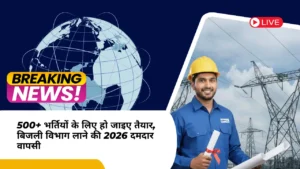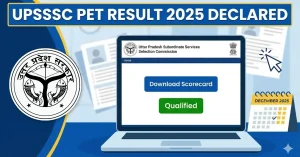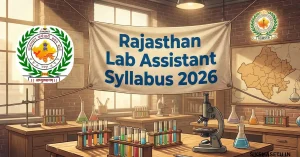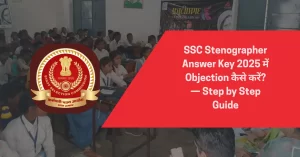UPSC Prelims 2025 के लिए सबसे अच्छी किताबें, बेस्ट स्टडी मटेरियल

SikshaSetu.in पर हम UPSC aspirants को सरल हिंदी में authentic preparation guides देते हैं। भाई अगर आप UPSC Prelims 2025 की तैयारी शुरू कर रहे हैं तो सबसे पहला सवाल यही आता है कि “सही किताबें कौन सी चुनें?” क्योंकि बिना proper study material के मेहनत बेकार चली जाती है। आज हम हर subject के लिए सबसे बेहतरीन किताबों के बारे में विस्तार से बात करेंगे – क्यों पढ़ें, कैसे पढ़ें, किस edition की लें, कहां से खरीदें सब कुछ।
Prelims में GS Paper 1 मुख्य है (200 marks) और CSAT qualifying। चलिए शुरू करते हैं।
UPSC Prelims की तैयारी के लिए सही किताबें क्यों जरूरी हैं?
UPSC Prelims दो पेपरों का एग्जाम है – General Studies Paper 1 और CSAT Paper 2। beginners को सबसे पहले ये समझना चाहिए कि GS Paper 1 qualifying नहीं बल्कि competitive है। यानी यहां अच्छे मार्क्स लाने ही पड़ेंगे। CSAT को 33% मार्क्स (qualifying) लाने होते हैं।
सही किताबें इसलिए जरूरी हैं क्योंकि UPSC का syllabus बहुत विस्तृत है। History से Environment तक सैकड़ों topics हैं। Generic किताबों से concepts clear नहीं होते। Standard books जैसे Laxmikanth, GC Leong जैसी किताबें years से toppers use करते आ रहे हैं। ये verified content देती हैं, PYQs के pattern match करती हैं।
सबसे important बात – हमेशा latest edition ही लें। 2025 के लिए 2024-25 editions perfect हैं क्योंकि CAA, Article 370 जैसे updates included होते हैं। Pirated copies से बचें क्योंकि quality खराब होती है और AdSense policy violation भी हो सकती है। Amazon, Flipkart से original खरीदें।
Polity के लिए सबसे best किताब कौन सी है और क्यों?
Polity के लिए market में सबसे best किताब है “Indian Polity by M. Laxmikanth”। ये book beginners और advanced दोनों के लिए perfect है। क्यों पढ़ें ये समझिए –
ये किताब Indian Constitution को chapter-wise बिल्कुल आसान भाषा में explain करती है। Fundamental Rights (Article 12-35), Directive Principles (36-51), President, Parliament, Judiciary – हर topic को flow chart और table के साथ समझाया गया है।
2025 edition में latest updates हैं जैसे – CAA Citizenship Amendment Act, One Nation One Election concept, Panchayati Raj में 73rd amendment changes। Book के last में 1000+ MCQs हैं जो exact UPSC pattern के हैं।
कैसे पढ़ें: पहले Part 1 (Constitutional Framework) पूरा करें। Daily 25-30 pages पढ़ें, keywords highlight करें। Notes में Articles number जरूर लिखें। Polity का 15-20% paper यहीं से आता है।
कीमत लगभग ₹550 है। McGraw Hill original publisher है। Flipkart/Amazon पर discount मिल जाता है। Student reviews देखें तो 95% लोग कहते हैं “ये book padh li to Polity clear!”
Geography की preparation के लिए top recommended किताब कौन सी?
Student का common doubt: “Physical Geography और World Mapping कैसे सीखूं?”
Detailed solution: Geography के लिए दो किताबें compulsory हैं – “Certificate Physical and Human Geography by G.C. Leong” primary book है। ये book physical geography के fundamental concepts को diagrams के साथ समझाती है।
Monsoon mechanism, Ocean currents, Temperate cyclones, Landforms – हर topic को real life examples के साथ explain किया गया है। Book में colored maps हैं जो mapping questions के लिए perfect।
Compulsory supplement: NCERT Geography Class 6 से 12 तक। Class 11-12 के “Fundamentals of Physical Geography” और “India Physical Environment” daily पढ़ें।
Pro tip: Oxford Student Atlas साथ में रखें। Weekly mapping practice करें। 2025 Prelims में climate change, Disaster Management के questions 15+ आएंगे।
कीमत: GC Leong ₹400, NCERT free PDF (ncert.nic.in)। Total investment ₹500 में Geography का पूरा syllabus cover।
History preparation के लिए standard books कौन सी लें?
Modern History (सबसे important): “India’s Struggle for Independence by Bipan Chandra”। ये book 1857 Revolt से 1947 तक chronological order में complete freedom struggle cover करती है। Gandhi, Subhash Bose, INC sessions सब detail में।
Ancient History: NCERT “Our Pasts I & II” (Class 6-12)। RS Sharma की old NCERT भी good option।
Medieval: Tamil Nadu Board Class 11 History (free PDF available)।
कैसे prepare करें: Timeline बनाएं। Important years remember करें – 1857, 1885, 1920, 1930, 1942। PYQs solve करें। History का 12-15% portion है।
Bipan Chandra की कीमत ₹300। Spectrum Modern History भी good alternative है।
Economy, Science & Environment की best books क्या हैं?
Economy के लिए: “Indian Economy by Ramesh Singh”। Budget, GDP, Inflation, Banking, Agriculture सब simple Hindi-English में। 2025 Union Budget, Crypto regulation updates included।
Science & Technology: NCERT Science Class 6-10 (biology, physics, chemistry basics)। Lucent General Science के Science section के लिए। ISRO, Biotech questions के लिए Shankar IAS Science chapter।
Environment & Ecology: “Environment by Shankar IAS Academy”। ये book Prelims के environment portion को completely cover करती है। Biodiversity, Climate Change conventions (Rio, Paris), National Parks – सब detail में।
Shankar IAS की सबसे खास बात – हर topic के end में MCQs। Environment का weightage 10-12 questions।
Current Affairs की daily preparation कैसे करें?
Current Affairs Prelims का 40-50% है। Daily routine ये बनाएं –
Newspapers: The Hindu (30 min daily)। Indian Express भी good।
Monthly: Yojana, Kurukshetra magazines (free PDF)।
Online: PIB.gov.in, PRSIndia.org, InsightsIAS daily quiz।
App: VisionIAS PT365 yearly compilation।
Topic-wise notes बनाएं – International Relations, Govt Schemes, Science News। 6 months consistent reading से CA strong हो जाएगी।
CSAT Paper 2 को qualifying कैसे बनाएं?
CSAT qualifying paper है (33% marks चाहिए)। Focus areas:
Comprehension: Daily 2 passages practice। Arihant CSAT book best।
Quantitative Aptitude: RS Aggarwal Class 6-10 level। Percentage, Profit-Loss, Time-Speed।
Reasoning: Analytical puzzles, seating arrangement।
Daily 1 hour practice। 2 months में comfortable हो जाएंगे।
Complete 6 महीने Study Plan Beginners के लिए
Month 1-2: NCERT foundation (6th-12th complete)
Month 3-4: Standard books + Daily Current Affairs
Month 5: Full length Mock Tests (Vision/Insights)
Month 6: PYQs 2011-2024 + Revision
Daily Schedule: 8 घंटे – 4 static, 2 CA, 1 test analysis, 1 revision।
Students के सबसे ज्यादा पूछे जाने वाले सवाल
सवाल 1: PYQs क्यों solve करें?
जवाब: PYQs से exact pattern पता चलता है। Repeated topics मिलते हैं। Disha PYQ book लें।
सवाल 2: कितने महीने preparation काफी?
जवाब: Beginner को 10-12 months। Consistent daily 8 hours।
सवाल 3: Coaching join करना compulsory है?
जवाब: नहीं। Self-study + standard books > coaching। Free YouTube channels follow करें।
सवाल 4: Expected cut-off 2025 का क्या?
जवाब: General category 95-100 marks (GS Paper 1)। Depends on paper difficulty।







